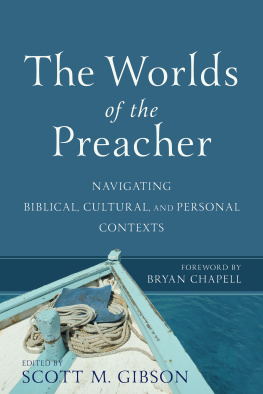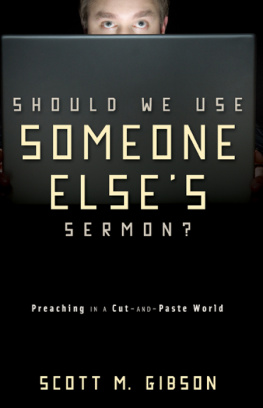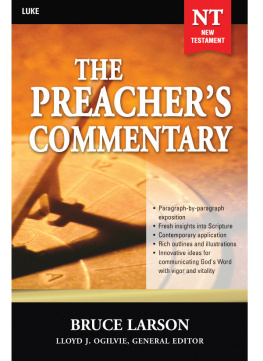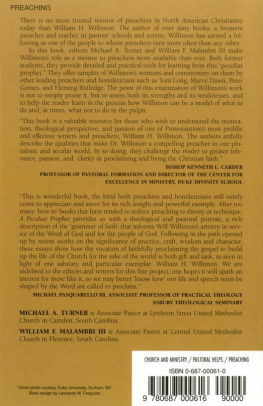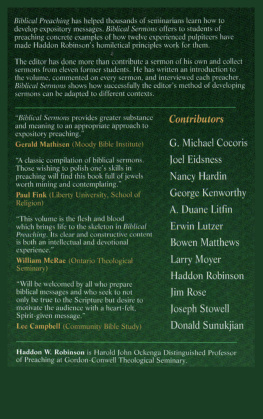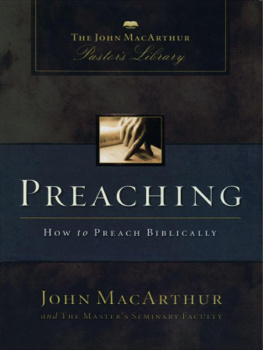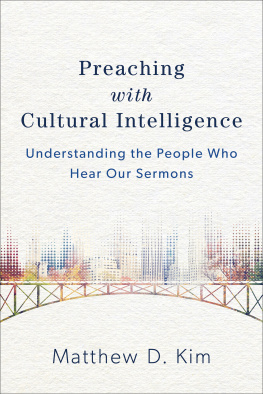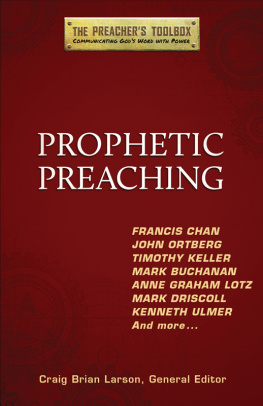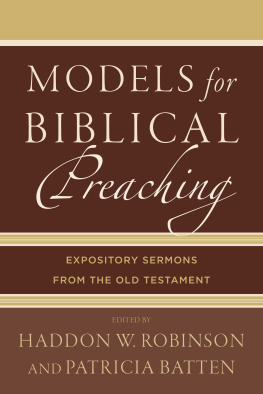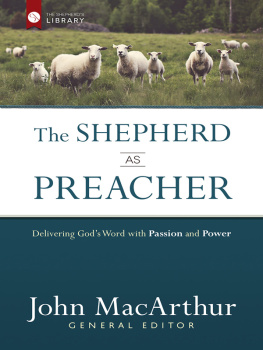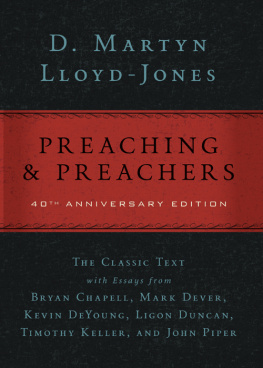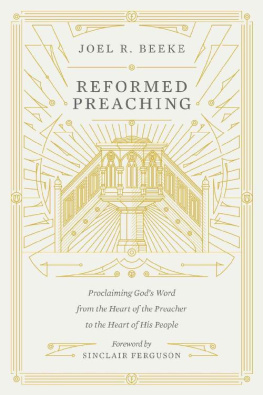Scott M. Gibson
1. The Worlds of the Preacher
Haddon W. Robinson
2. The Preacher and the World of the Old Testament
Steven D. Mathewson
3. The Preacher and the World of the New Testament
4. The Preachers Personal World
Scott M. Gibson
5. The World of Ethnic and Cultural Issues in Preaching
Matthew D. Kim
6. The Worlds of the Listener
7. Preaching in This Present World
Patricia M. Batten
8. The Mission of Preaching in This World
Victor D. Anderson
9. The World of History and the Task of Preaching
Donald R. Sunukjian
Scott M. Gibson
Foreword
BRYAN CHAPELL
I was the up and comer. Haddon was the reigning master. We were invited by a publisher we shared to a college campus for a joint project that would combine our instruction in one of the first-ever digital educational programs designed to teach preaching remotely.
Prior to that project I had never met Haddon Robinson. I had read, quoted, and admired this respected seminary president, homiletics professor, and author of Biblical Preaching (probably the most widely distributed homiletics textbook in history), but I had not enjoyed his company. I wasnt sure what to expect. His writings were filled with wisdom but presented with remarkable clarityalmost deceptively simple without being simplistic, plain yet able to inspire with poignancy. So I was not sure which Haddon Robinson I would meet: the plain preacher or the sage professor. I met both.
The technology experts took care of putting our homiletical ideas and teaching methods into digital formats, audio recordings, computer figures, and animated vignettes. Our books were sliced, diced, and enfolded into a single, comprehensive preaching course that looks primitive today (kind of like an early Pong video game), but it was cutting edge at the time. There simply was not enough memory capacity in most personal computers to run anything more sophisticated, and we were pioneering with theology software that now seems about as advanced as The Lucy Show when compared to the latest Star Wars film.
The one concession our engineers were able to make for designing a human touch into the software was allowing Haddon and me to make a brief video statement of the emphases and priorities of our books. By this time, I had been teaching preaching for several years, but my main book on preaching had only recently been published. Haddon was far more experienced as a preacher and academic, and his book was being used worldwide, establishing him as the premier teacher of preaching for that time.
I wondered how anything I would say could hold a candle to whatever he was going to say in our short video clips. So I focused hard on memorizing the preface to my book, trying to look intelligent and sound important as I recited into a TV camera the formal purposes of expository preaching with academic precision and doctoral tones. Not bad, I thought, when I had finished. At least I wont come across as dumb.
But then it was Haddons turn. I dont remember the exact words that he said, but I remember how he said them. He looked at the camera, smiled, and spoke as though he were addressing a friend across the kitchen table. There was no pretense, no professorial puffery, no high-sounding oratory. He did not say God with three syllables and did not worry about presenting his ideas with perfection. He was quite simply as natural, caring, and human as any teacher I have ever seen in expressing his love for Gods Word, his regard for the calling of preaching, and his care for the preachers we were preparing to instruct for a lifetime of proclamation.
When he was done, I confess that my first thought was, I wish I had done that. Because of that moment and Haddons example, I learned that I could do exactly that in the many future occasions I would have to further the work of homiletics in which we co-labored. The example of a senior statesman in my field who was so confident of the power of the Word and the strength of his thought that he could afford to be straightforward and caring in expression stuck with me. I am forever grateful to Haddon for that understanding of what it means to be a man of God as well as a professor of preaching.
Though I had been a teacher of preachers for years, I learned the reality of ethos from Haddon that day in a way that I had not previously grasped. We communicate more when we speak with plain truth and compassion for others than we do when we speak with ornateness and concern for our reputations. Thats why the apostle Paul would write, Seeing then that we have such hope, we use great plainness of speech (2 Cor. 3:12 KJV), an expression of both boldness and clarity, echoing the ancient biblical ethic of presenting the Word of God clearly so that Gods people can understand and act upon it (Neh. 8:8).

